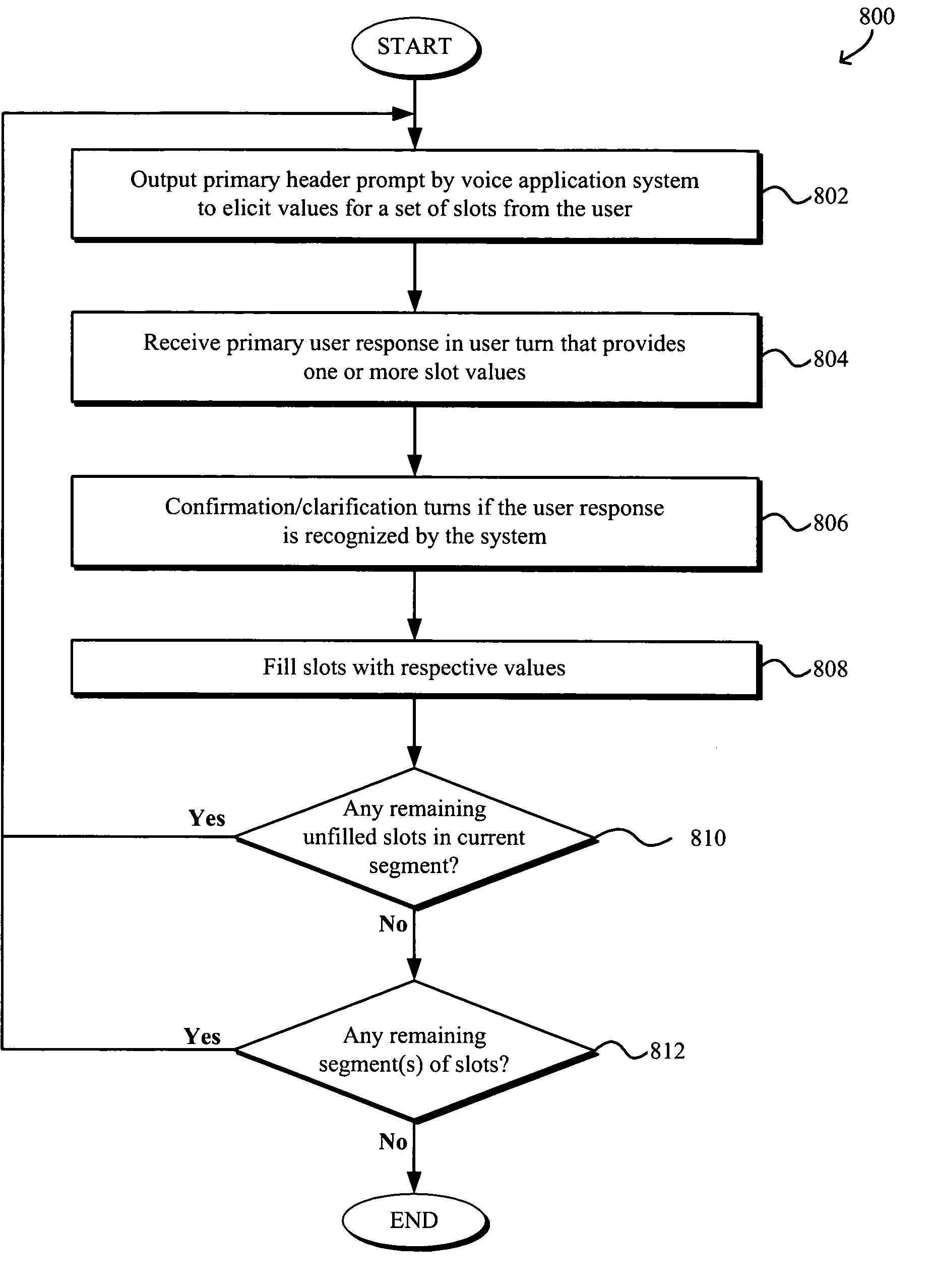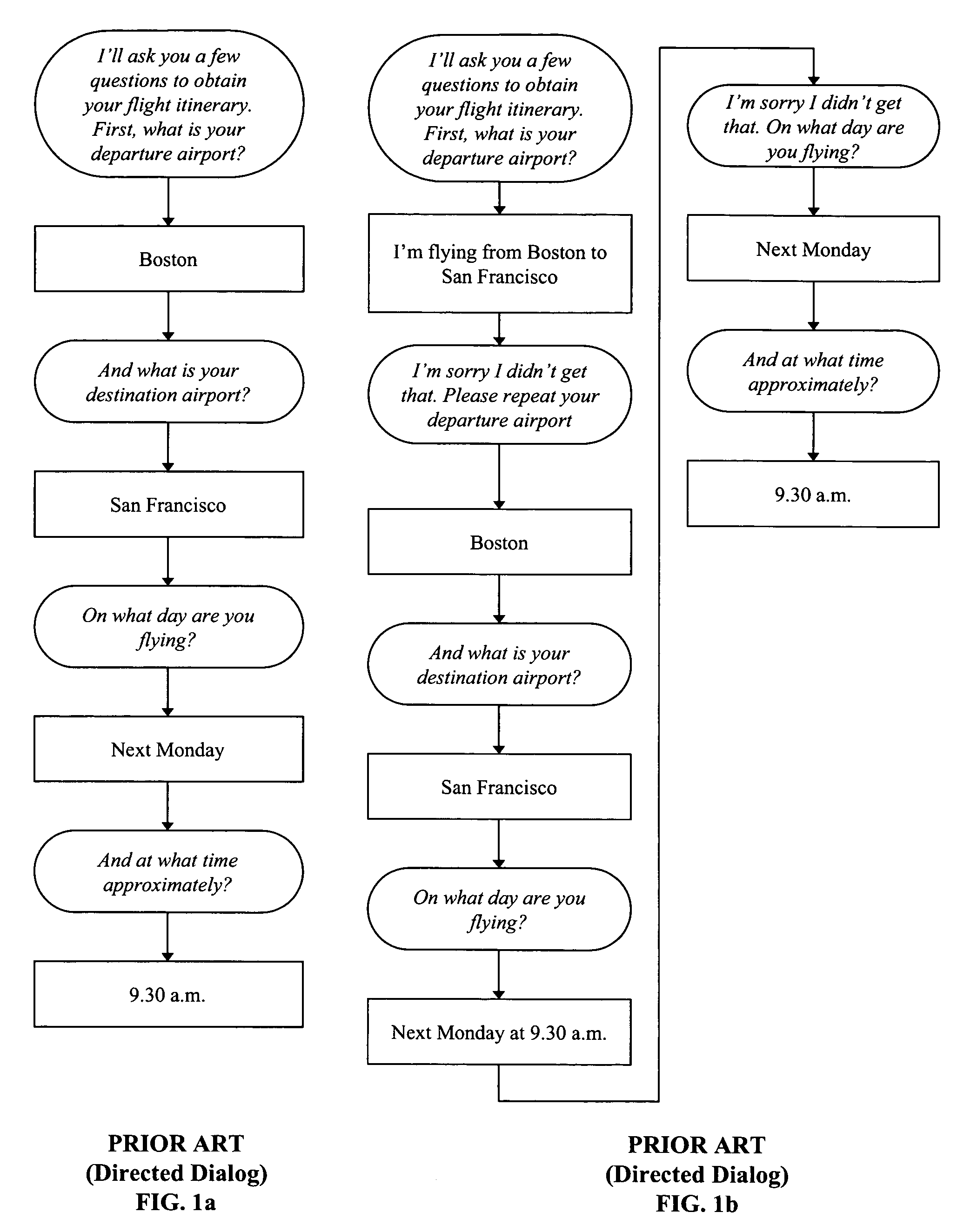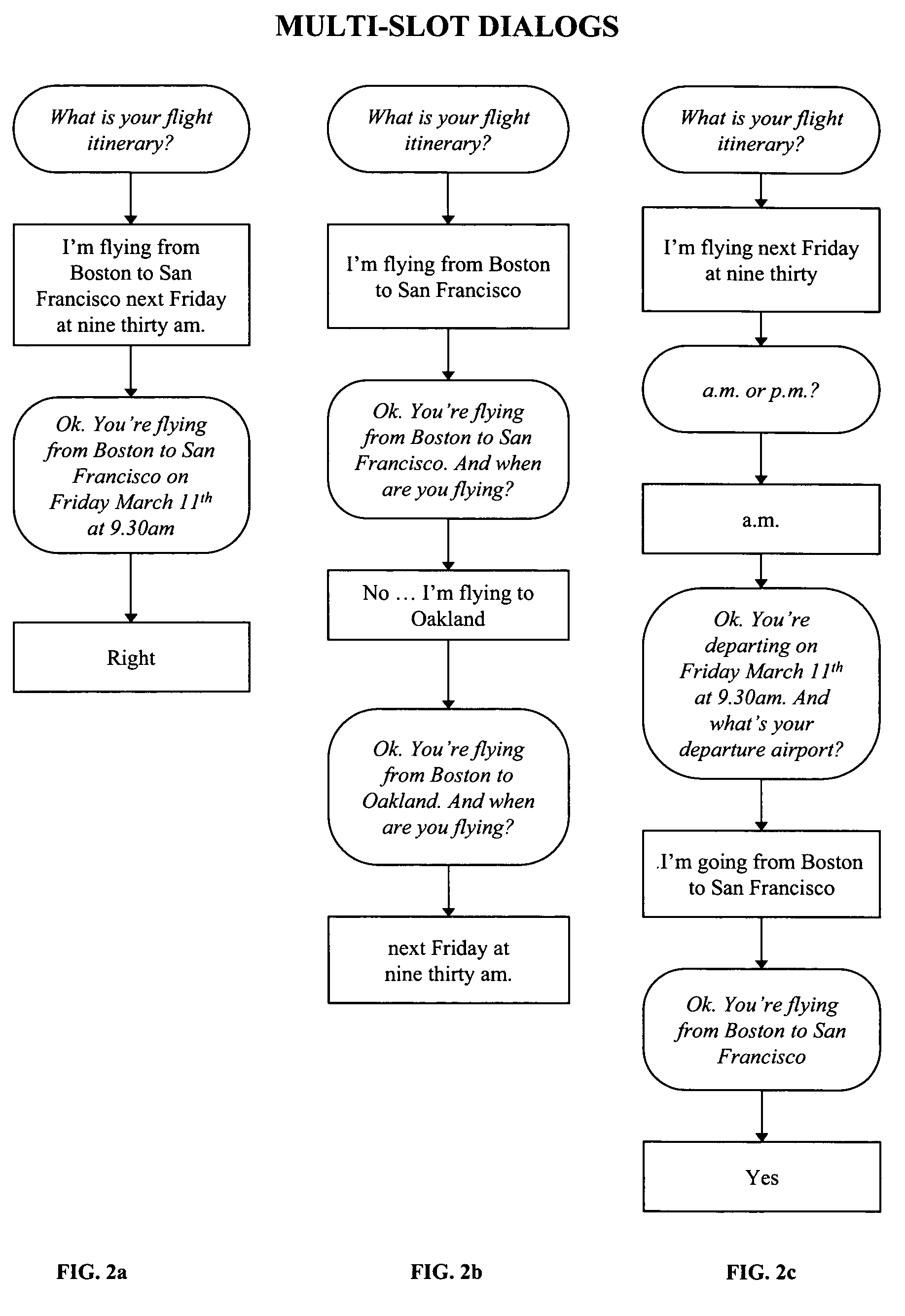Multi-slot dialog systems and methods
a multi-slot, dialog system technology, applied in speech recognition, speech analysis, instruments, etc., can solve the problems of difficult to build effective voice systems using past approaches, burdening developers with low-level, and unable to easily adapt applications to other platforms
- Summary
- Abstract
- Description
- Claims
- Application Information
AI Technical Summary
Benefits of technology
Problems solved by technology
Method used
Image
Examples
Embodiment Construction
[0038]Systems and methods for constructing a series of interactions with a user to collect multiple pieces of related information for the purpose of accomplishing a specific goal or topic (a multi-slot dialog) using a component-based approach are disclosed. The multi-slot dialog systems and methods obtain information from a user by conducting a speech-recognition based series of interactions. The systems and methods include determining the prompts output to the user as well as the grammars and semantic rules utilized to recognize user inputs such as utterances at each point in the conversation or interchange. The following description is presented to enable any person skilled in the art to make and use the invention. Descriptions of specific embodiments and applications are provided only as examples and various modifications will be readily apparent to those skilled in the art. The general principles defined herein may be applied to other embodiments and applications without departi...
PUM
 Login to View More
Login to View More Abstract
Description
Claims
Application Information
 Login to View More
Login to View More - R&D
- Intellectual Property
- Life Sciences
- Materials
- Tech Scout
- Unparalleled Data Quality
- Higher Quality Content
- 60% Fewer Hallucinations
Browse by: Latest US Patents, China's latest patents, Technical Efficacy Thesaurus, Application Domain, Technology Topic, Popular Technical Reports.
© 2025 PatSnap. All rights reserved.Legal|Privacy policy|Modern Slavery Act Transparency Statement|Sitemap|About US| Contact US: help@patsnap.com



